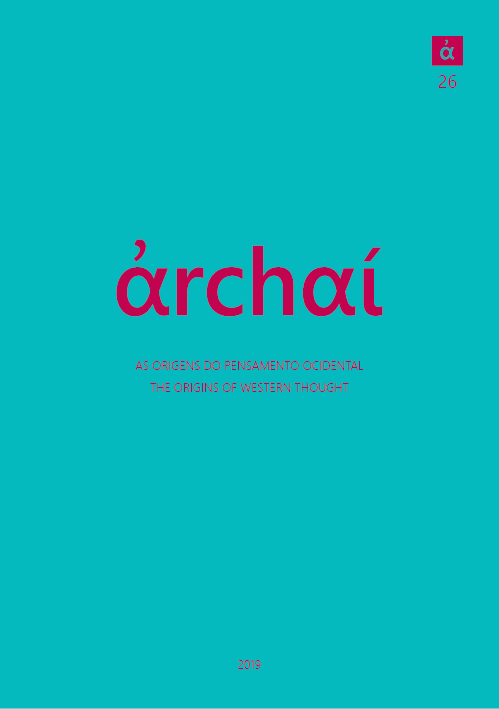The western way of war revisited
merits and problems of a military theory
DOI:
https://doi.org/10.14195/1984-249X_26_4Keywords:
Victor Davis Hanson, Hellenism, ancient Greece, Military History, WestAbstract
This article aims at criticizing Hanson’s theory of the Western way of war from what historians have identified as its main problems: the alleged continuity of Western warfare through centuries, starting with the ancient Greeks; and the so-called “Asian contrast” from its main implications. Hence, it is divided into three sections: 1) the presentation and merits of Hanson’s theory; 2) its classical bases, or the emphasis of Greek warfare on decisive battle as a “cultural choice”; 3) the criticism.
References
BUCKLER, J. (1991). The Western Way of War: by Victor Davis Hanson. The Journal of Military History 55, n. 2, p. 237-238.
CREASY, E. (1851). Fifteen decisive battles of the world. From Marathon to Waterloo. London, R. Bentley.
DELBRÜCK, H. (1920). Geschichte der Kriegskunst im Rahmen der politischen Geschichte. Vol. 1. Berlin, G. Stilke.
FÜLLER, J. (1987). A military history of the Western world. From the earliest times to the battle of Lepanto. Vol. 1. Boston, Da Capo Press. (1ed 1954).
HANSON, V. D. (1989). The Western way of war. Infantry battle in Classical Greece. Berkeley/Los Angeles/London, University of California Press.
HANSON, V. D. (2001). Why the West has won. Carnage and Culture from Salamis to Vietnam. New York, Faber and Faber.
HOYOS, D. (ed.) (2011). A Companion to the Punic Wars. Malden/Oxford, Blackwell.
KAGAN, D. (1996). On the Origins of War: And the Preservation of Peace. New York, Anchor Books.
KAGAN, D. (2003). The Peloponnesian War. New York, Penguin.
KEEGAN, J. (1993). A History of Warfare. New York, Alfred Knopf.
KEPPIE, L. (1998). The Making of the Roman army. London, Routledge.
LARCHER, P. H. (1950). Heródoto. Histórias. Versão portuguesa de J. Rocha. Rio de Janeiro, Clássicos Jackson.
LAZENBY, J. (1992). The Western Way of War: Infantry Battle in Classical Greece by V. D. Hanson. The Journal of Hellenic Studies 112, p. 203-204.
LIDDELL HART, B. (1929). The decisive wars of history: a study in strategy. London, G. Bell & sons.
LIDDELL HART, B. (1933). The British way in warfare. New York, Macmillan.
LYNN, J. (2003). Written in blood: The Classical Greek Drama of Battle and the Western Way of War. In: LYNN, J. (ed.). Battle: a history of Combat and Culture. Cambridge, Westview.
MONTEIRO, J. (2009). Vegécio. Compêndio da Arte Militar. Coimbra, Imprensa da Universidade de Coimbra.
MONTEIRO, J. (2012). Grandes conflitos da história da Europa. Coimbra, Imprensa da Universidade de Coimbra.
SANT’ANNA, H. M. (2011). Alexandre Magno: a paixão da guerra. Coimbra, Imprensa da Universidade de Coimbra.
THORTON, B. (2014). The incoherent excuses for hating Israel. Frontpage Mag, 21/07/2014. Disponível em http://www.frontpagemag.com/2014/bruce-thornton/the-incoherent-excuses-for-hating-israel/ Acesso em 02/06/2017.
NAGLE, B.; BURSTEIN, S. (eds.) (2007). Readings in Greek history. Sources and interpretations. New York/Oxford, Oxford University Press.
WERT, H. (2003). Carnage and Culture: Landmark Battles in the Rise of Western Power. By Victor Davis Hanson. The Journal of Military History 67, n. 2, p. 545-547.
Downloads
Published
Issue
Section
License
Given the public access policy of the journal, the use of the published texts is free, with the obligation of recognizing the original authorship and the first publication in this journal. The authors of the published contributions are entirely and exclusively responsible for their contents.
1. The authors authorize the publication of the article in this journal.
2. The authors guarantee that the contribution is original, and take full responsibility for its content in case of impugnation by third parties.
3. The authors guarantee that the contribution is not under evaluation in another journal.
4. The authors keep the copyright and convey to the journal the right of first publication, the work being licensed under a Creative Commons Attribution License-BY.
5. The authors are allowed and stimulated to publicize and distribute their work on-line after the publication in the journal.
6. The authors of the approved works authorize the journal to distribute their content, after publication, for reproduction in content indexes, virtual libraries and similars.
7. The editors reserve the right to make adjustments to the text and to adequate the article to the editorial rules of the journal.



